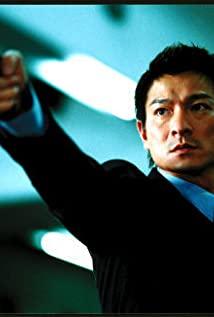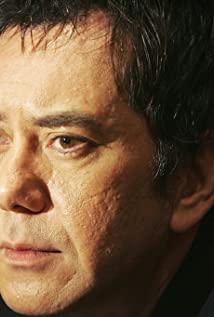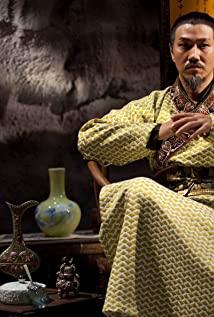This article was published on the Taotao Tao Film Public Account (ttfilm) on December 12, 2017. If you want to reprint, please contact DouPost.
===================================================== ===========================
Back in December 12, 2002, the Hong Kong film industry was in a downturn, and most of the films grossed only 2 million Hong Kong dollars at the box office.
Just when the market continued to be in the doldrums, a well-received and popular classic movie was born, with a box office of 55 million in Hong Kong . The award included 7 awards including best film and best actor, and was later remade into "The Departed" by Martin Scorsese, including the best film and best director at the 79th Academy Awards. , Best Editing, Best Adapted Screenplay.
That's " Infernal Affairs ", yes, it's 15 years since its release today.
Rewatching this film 15 years later, I still feel that this is the pinnacle of Hong Kong cinema. No matter how many times I watch it, I can't get enough of it.
Or, on this special day, we can relive together, the pinnacle of this Hong Kong film.
1. At the beginning of the film, Han Chen and several newcomers under him drink tea and practice, and send them to the police academy to become undercover agents.
There were a total of 7 newcomers present, and Han Chen had just paid tribute to the 6 brothers who died when he started, implying that one of the seven had a different fate than the other six, that is, Liu Jianming, the only one in sharp focus in this shot.
2. Whether these 6 newcomers were successfully placed in the police station, the movie never gave a positive account, until the big B played by Lin Jiadong at the end of the film revealed his identity. But in fact, it has already been hinted in the film: Liu Jianming's text messages to Han Chen have commas, but Han Chen's text messages do not have commas. In other words, Han Chen installed more than one undercover agent in the police station.
3. When Chen Yongren followed Liu Jianming through the cinema corridor, the movie posters behind them were "Men in Black 2" and "K-19: The Widowmaker".
After checking the contents of these two films, I think they appear here only because of the posters (two men in black with similar identities) and the titles (the deaths of Superintendent Huang, Chen Yongren, and Han Chen are all left behind) gave up the widow, and Liu Jianming, who died in the sequel).
4. After both Han Chen and Superintendent Huang realized that the other party had placed an undercover agent on them, they were looking at the people around them. There were originally two people on the left and right beside Han Chen. This symmetry was broken by Chen Yongren in the corner. He was a superfluous person;
After looking around for a week, Superintendent Huang gave Liu Jianming a clear close-up.
5. Not only that, but the colors of Chen Yongren and Liu Jianming's clothes are also full of information: Chen Yongren often wears black like Superintendent Huang, while Liu Jianming dresses differently from Superintendent Huang, always the same. Black and white.
6. The deaths of Han Chen, Superintendent Huang and Chen Yongren are shocking, but their endings have long been given.
Like I said before, whoever loses will die.
When Han Chen and Superintendent Huang challenged, they claimed that they would definitely win.
And when Han Chen and Liu Jianming met in the theater, the line "I lost, lose my temper at me" appeared on the screen in front of them. The film, 1995's "The Black Horse," tells the story of a young man who leaves his family and a familiar place and returns to find that everything has gone wrong.
Superintendent Huang also realized he had lost before he died.
When Superintendent Huang and Chen Yongren were waiting for the elevator, the elevator number skipped 4.
The two later took the stairs to escape for their lives, but could not escape the number.
7. In the second part, Chen Yongren said that he hoped Superintendent Huang would find him an office where he could see the sea. In the end, his grave is by the sea.
In addition to these massive details, the most ingenious setting of the film is that the identities of the two male protagonists Liu Jianming and Chen Yongren are double inverted and tend to be consistent.
On the surface, one of the two male protagonists is an excellent policeman, and the other is a gangster's younger brother. In fact, the former is an undercover gangster in the police, and the latter is an insider of the police in the gang. This is the first inversion. When the two were at the police academy, the police numbers were 4927 and 27149, as if the two had been interchanged.
Liu Jianming's siren number is only four digits, implying that he is not a real policeman. The number 49 is exactly the number of days that a person will stay in the world after death according to traditional customs. During these 49 days, people can atone for their sins if they are saved, otherwise they will end up in hell.
The Uninterrupted Hell, transliterated as "Avici Hell", is the most painful one of the eight hells in the Buddhist scriptures. Sinners are tortured here without stopping and without gaps.
In the "Jade Calendar Treasure Notes", it is said that those who commit fifteen sins will be cast into the endless hell, one of which is called "broken and combined monks", which refers to spreading rumors, playing with right and wrong, and causing disputes in a group, which eventually leads to this The sin of group disintegration. If this is true, then Chen Yongren and Liu Jianming have already committed this crime as undercover agents, and they will both be "infernal people".
But what is fortunate for Chen Yongren than Liu Jianming is that Chen Yongren has always known the answer to this question.
Just like he answered this question from Superintendent Huang when he was in the police academy.
Also walking between black and white, Chen Yongren never forgot that he was a policeman, even if he could only secretly salute Ye Sir's coffin in a dark corner.
Chen Yongren always chooses to meet on the rooftop, whether it is with Superintendent Huang or Liu Jianming.
Because he is open-minded and open-minded. And Liu Jianming, as a policeman, guards a dirty secret, and can only hide in the dark to meet the gang boss. This is the second inversion.
In the film, Liu Jianming looked at Chen Yongren's back and said to himself twice "I want to change with him". The first time was when the two of them were still in the police academy, and Liu Jianming, who was still stunned, just wanted to graduate early so that he could go back to his favorite sister Mary.
The same sentence of the adult Liu Jianming has a different meaning. I don't know if he wants to be a real policeman like Chen Yongren, or if he would rather die and be relieved than he is to be tortured alive.
Recalling the book to be written by Liu Jianming's girlfriend Mary, the protagonist is a schizophrenic patient with twenty-eight personalities.
This content reminds me of the multiple schizophrenia nonfiction novel "24 Billys". The protagonist of the story has 24 split personalities, and Mary counts the boxes to exactly twenty-four.
What Mary is talking about is actually the life of Liu Jianming in reality, and it also foreshadows the ending of his schizophrenia in the sequel.
The only time Chen Yongren thought of mental problems was purely a joke.
Chen Yongren believed that he was a policeman and a good person until his death. If the roof is the world and the ground is hell, then the elevator connecting the roof and the ground is the way to hell. Chen Yongren died when the elevator opened, and did not crash with the elevator; while Liu Jianming fell into hell with the elevator.
Many people must remember Liu Jianming's laugh at the end of Infernal Affairs Part II.
At that time, he heard a masseuse reporting her name as Mary, and he thought of the sweetheart he killed. In fact, Liu Jianming also showed this kind of smile in the first part, because he heard Chen Yongren say what Mary said.
Liu Jianming remembered the best years in his life, a person he really liked who was destroyed by his own hands. He finally went crazy because he still had a trace of conscience, and he could neither do evil recklessly nor escape the torture of his conscience.
It's a pity that in reality, it is often the people who do evil who enjoy wealth, honor and longevity, they will not go to hell, just like the words that have been said so much, hell is empty
View more about Infernal Affairs reviews











